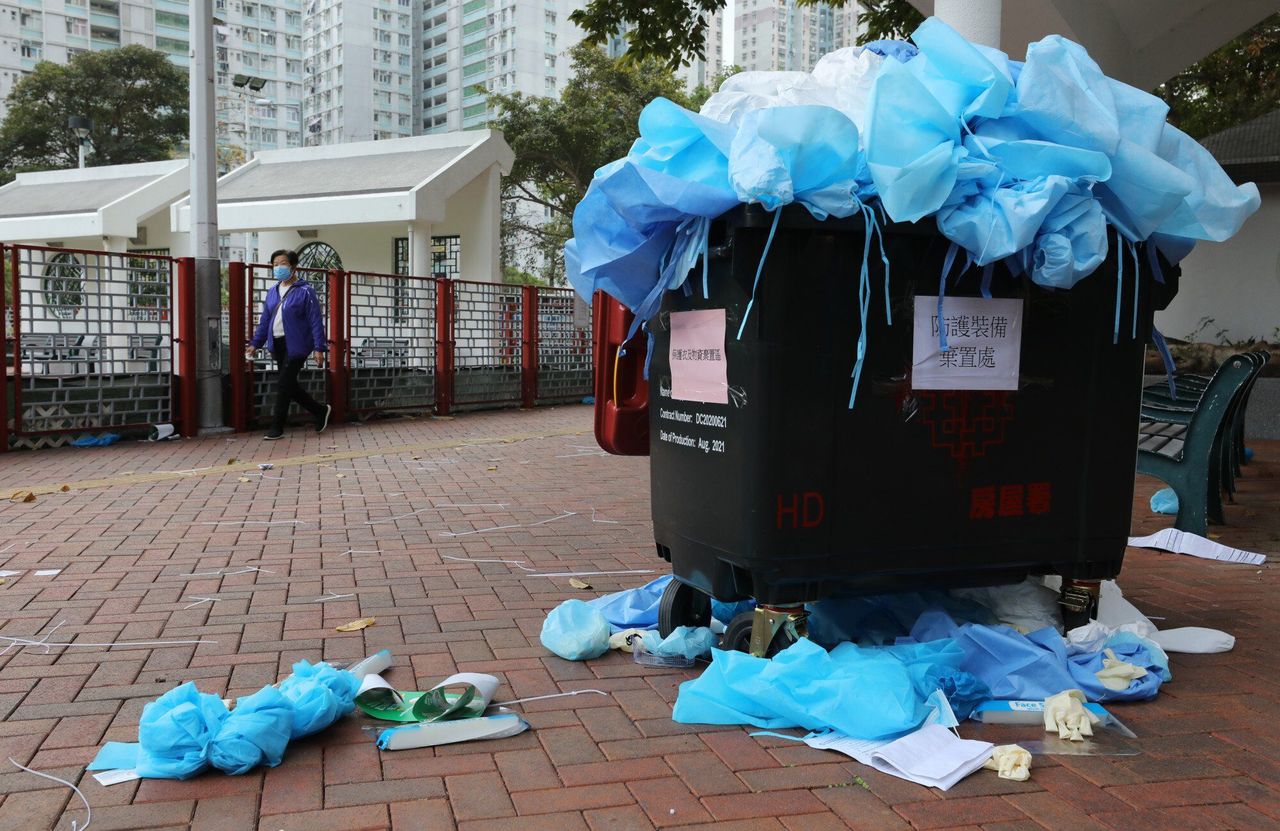Hong Kong News

Hong Kong’s pandemic response must remember those in home quarantine
Two years have passed since the onset of the Covid-19 epidemic, and a major outbreak unfolded recently in Kwai Chung. The problems that emerged in Kwai Chung Estate, especially the emergency response process and compulsory home quarantine arrangements, suggest the government’s emergency response has lacked effective coordination and is too passive, reactive and lagging behind the situation.
It is worrying that the government’s disaster and emergency response plan has not kept up with the times. It has failed to consider the various needs of the people affected by the epidemic holistically and comprehensively.
The case clusters in Kwai Chung Estate in late January revealed that our government faced major capacity challenges in arranging compulsory home quarantine, providing basic food necessities, ensuring access to medication and upholding reasonable environmental and living conditions for those under compulsory home quarantine.
Biological hazards such as pandemics have their own unique aspects. Even so, emergency response plans should focus not only on virus testing and mobilisation of the health sector but also the emergency needs applicable to all disaster response, including the roles and participation of other government departments.
Two years of trying to control the pandemic should be sufficient time to incorporate these needs into a response plan and step up coordination among government departments.
 Disposable gowns and gloves fill the rubbish bin at Kwai Chung Estate on January 26 during its lockdown.
Disposable gowns and gloves fill the rubbish bin at Kwai Chung Estate on January 26 during its lockdown.
However, the pitfalls in compulsory home quarantine in Kwai Chung Estate indicate the city’s emergency response plan does not fully consider issues such as timely distribution of food to people who are under compulsory home quarantine. As a general rule, people affected by pandemics should receive essential support like other disaster victims.
The United Nations Office for Disaster Risk Reduction and the World Health Organization advocate incorporating biological hazards such as the Covid-19 pandemic into national and local disaster risk reduction planning.
The United Nations’ Sendai Framework for Disaster Risk Reduction 2015-2030 has advocated a “multi-hazard approach” to manage disaster risk. This involves preparing for and responding to the common elements and needs shared among different types of hazards and developing common capacities applicable to all disaster risks to achieve synergy, supplemented by specific measures that address the uniqueness of a particular kind of hazard.
The WHO’s Health Emergency and Disaster Risk Management Framework also advocates a whole-of-government, whole-of-society approach to manage disasters and emergency health risks, especially for responding to biological hazards such as pandemics.
As the China focal point for Sphere – an international organisation on humanitarian response standards – the Collaborating Centre for Oxford University and CUHK for Disaster and Medical Humanitarian Response, of the Faculty of Medicine at the Chinese University of Hong Kong, recommends the government’s emergency response and disaster risk reduction plans should incorporate biological hazards including pandemics.
The government should refer to the standards of emergency provisions for disaster victims in four essential areas in the Sphere handbook, namely water, sanitation and hygiene; food and nutrition; shelter and settlement; and health.
In the chapter on food and nutrition, the handbook emphasises the need to ensure disaster victims have safe access to food supplies of a certain level of quality and quantity. It calls for particular attention on the special nutritional needs of vulnerable groups such as older people, pregnant and breastfeeding women, infants and young children, ethnic minority groups and people with chronic diseases or disabilities.
Food should be distributed according to the requirements of different groups of people. Food and nutrition are not only about survival but also about maintaining the dignity of disaster victims.
As an international metropolis, Hong Kong should have enough resources and capabilities to be well-prepared for disasters and humanitarian response. In epidemic response, virus testing should not become the only focus at the expense of fulfilling the basic needs for maintaining people’s daily lives and health, especially those of the vulnerable.
 Health officers in protective clothing work at a Covid-19 testing
station at Kwai Chung Estate on January 27. In any epidemic response,
virus testing should not become the only focus.
Health officers in protective clothing work at a Covid-19 testing
station at Kwai Chung Estate on January 27. In any epidemic response,
virus testing should not become the only focus.
Disasters and humanitarian response are not issues for which only developing countries need to prepare. This is especially so when facing disaster risks arising from climate change and globalisation.
To protect citizens’ health and life, the hard work of frontline personnel needs effective coordination. The government must re-examine its preparedness and capacity for emergency coordination to achieve its aspiration for good governance.
At the same time, the government should also empower the community through publicity and education to encourage citizens to stock up on emergency supplies such as food, water and medicine at home and learn how to quarantine at home. This way, bottom-up community self-help and top-down emergency response measures can achieve synergy.











